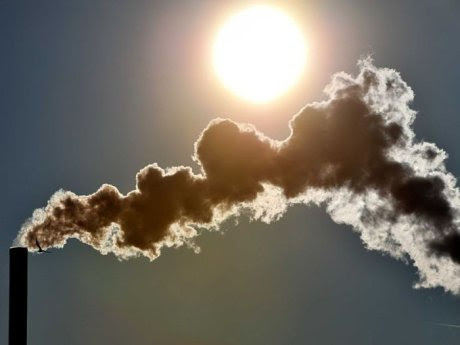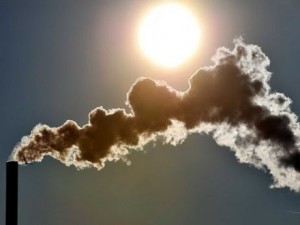ABC AUSTRALIA
Lexi Metherell
Australian action on climate change has not kept pace with global momentum, climate groups say, with the Federal Parliament yet to ratify the Paris Agreement a week out from the first global meeting on the issue since the landmark talks which forged the deal last year.
Advocacy group Climate Council said 85 of the 195 countries who met in Paris last December have ratified the deal — including the United States and China who formally lodged their ratification documents at a joint announcement in September.
The Paris Agreement commits countries to achieving zero net emissions and limiting global warming to 1.5 to 2 degrees Celsius.
It has now been ratified by countries responsible for more than 55 per cent of emissions and will come into force on November 4.
Australia has signed the Paris Agreement, but will not be legally bound by it until it is ratified — that is, passed — by the Parliament.
The Government said it tabled the Paris Agreement at the first opportunity after the election, and the ratification is now in its final stages, with the agreement before the Joint Standing Committee on Treaties.
What will the deal mean for Australia?
Find out just how the historic Paris agreement will affect the country and place pressure on the Government to do more.
“It’s unlikely that Australia will have ratified the agreement prior to the global talks starting, which is unfortunate,” chief executive of the Climate Council Amanda McKenzie said.
“Part of the important thing in Australia’s contribution to the international movement on climate change is that we’re trying to establish some momentum.
“So the US in particular, as well as China, has really been driving momentum in the last few years on climate change and it requires countries to step up and say what they’re going to do, so it’s unfortunate that Australia hasn’t ratified the agreement prior to the Marrakech talks.”
Questions over whether Australia’s policies are up to scratch.
Foreign Minister Julie Bishop and Environment Minister Josh Frydenberg are expected to attend the international climate meeting which begins next week in Marrakech in Morocco.
The road to ratification
A host of countries have ratified the Paris climate agreement and Australia seems likely to do so — here’s how we got to this stage.
The Climate Council said they were likely to face questions from other countries about whether Australia could meet the terms of the Paris Agreement with its current policies and emissions targets since Australian emissions are still rising.
Climate experts have raised concerns that Australia’s emission cuts target of 26–28 per cent on 2005 levels by 2030 are too weak to meet the international target and that the current suite of policies are unlikely to meet even the domestic targets.
“We’ve already seen [in UN forums] other countries questioning Australia’s capacities to meet its emissions reduction targets with our current policies,” Ms McKenzie said.
“The US, China and New Zealand have all raised questions about whether our current policies are up to scratch.
“So you’d expect to see in Morocco that there will be substantial pressure applied to Australia to up our game on climate change.”
In a statement, the Environment Minister’s office said Australia was reducing emissions through policies including the $2.55-billion Emissions Reduction Fund.
“We successfully met our first Kyoto target by 128 million tones and we are on track to beat our 2020 target by 78 million tones,” it read.
The statement did not make any reference to meeting the 2030 targets.
Australia’s emission reduction targets are ‘weak’.
The Government is planning to review its climate policies next year, in what Mr Frydenberg has described as a “sit-rep” to look at the effectiveness of meeting its targets, but he has signalled that it is unlikely to lead to a major overhaul of policies or revised targets.
Ms McKenzie said it was critical the targets were reviewed.
“Reviewing Australia’s emission reduction targets must be on the agenda because they are weak,” she said.
“They’re not sufficient to protect Australia from climate change, from intensifying extreme weather events and they’re not in line with what our allies, what our trading partners around the world, are doing.
“Other countries are now doing far more than Australia. So the Government needs to step up our emissions targets and do more.”
The Climate Council has released a report titled Towards Morocco: tracking global climate progress since Paris, which also catalogues a series of extreme weather events around the world since last year’s meeting — including deadly heatwaves, coral bleaching and eight one-in-500-year rainfall events in the US.








